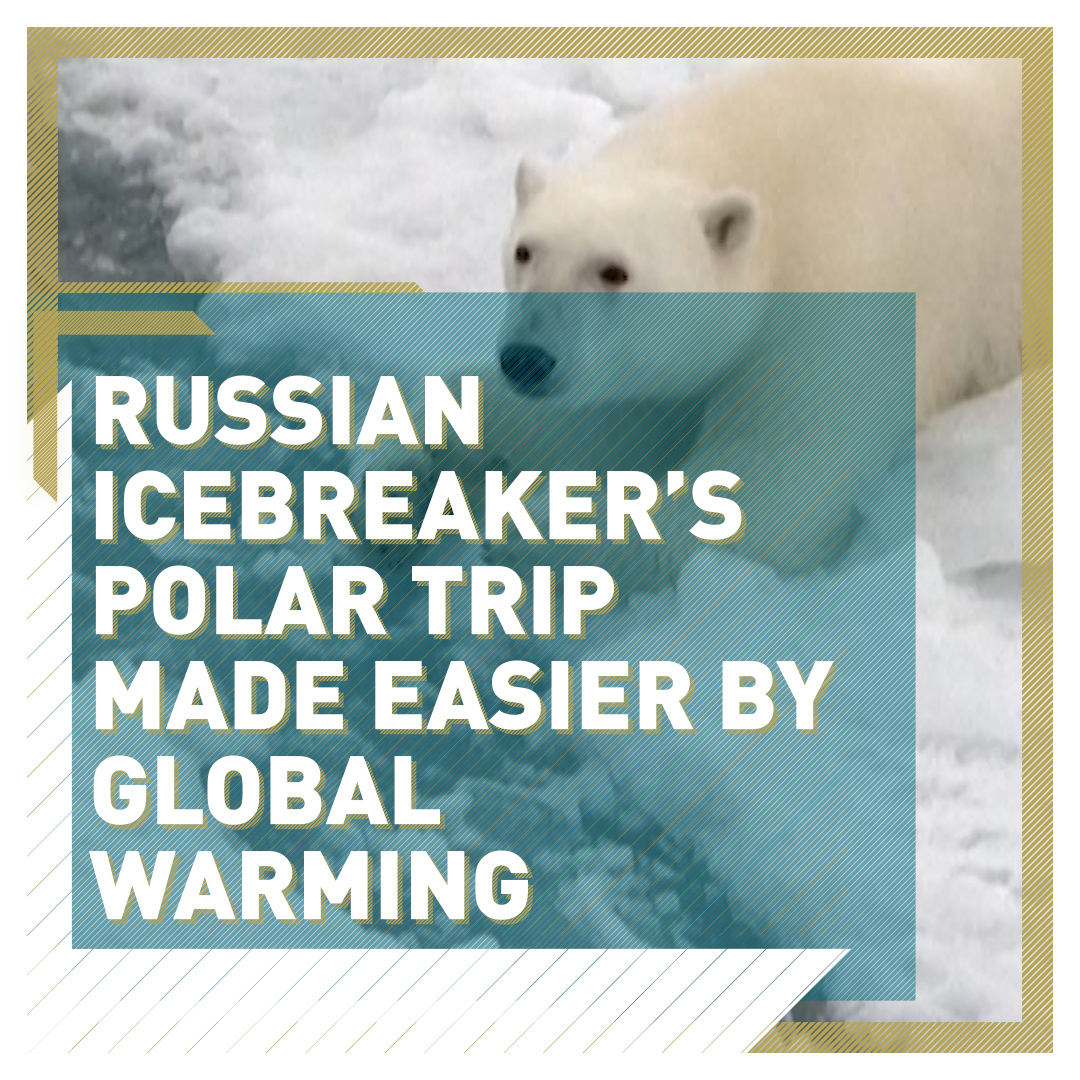00:59

Captain Dmitry Lobusov has been traveling through the frozen waters of the Arctic Ocean for the past three decades.
But since the 1990s, the treacherous journey to reach the North Pole, which can only be done during the summer, has changed – it's become easier.

The Russian '50 Years of Victory' nuclear-powered icebreaker is seen at the North Pole on August 18. /Ekaterina Anisimova/AFP
The Russian '50 Years of Victory' nuclear-powered icebreaker is seen at the North Pole on August 18. /Ekaterina Anisimova/AFP
Even at the Earth's most northern point, temperatures are climbing.
"At the beginning of the 2000s, the ice was much more complex, more difficult, thicker, there was a lot of perennial [ice]. Now we practically do not meet such ice," Lobusov told AFP reporters.
On board the Russian nuclear-powered icebreaker 50 Let Pobedy (50 Years of Victory), Lobusov and his crew had an opportunity to observe how the Arctic landscape has changed in the past decades.

Captain of the Russian '50 Years of Victory' nuclear-powered icebreaker, Dmitry Lobusov, leads the 160-meter ship in the Arctic Ocean towards the North Pole on August 16. /Ekaterina Anisimova/AFP
Captain of the Russian '50 Years of Victory' nuclear-powered icebreaker, Dmitry Lobusov, leads the 160-meter ship in the Arctic Ocean towards the North Pole on August 16. /Ekaterina Anisimova/AFP
"The humidity has increased. We, as sailors, are especially watching this, cyclonic activity has changed," says Lobusov.
"Cyclones began to behave differently. In fact, today we [the crew] remembered: earlier it was simply impossible to get to the Pole in the summer without sunglasses, because the sun was shining so much. Now I think you will not see the sun."
Less ice freezing in the waters of the Arctic Ocean means the journey north is not as difficult as it used to be. But on the other hand, the landscape won't be the same majestic one adventurous explorers went to discover in the last century.
"The glaciers are crumbling. There are no questions here, without doubt this is the effect of heat," says Lobusov.
Source(s): AFP

